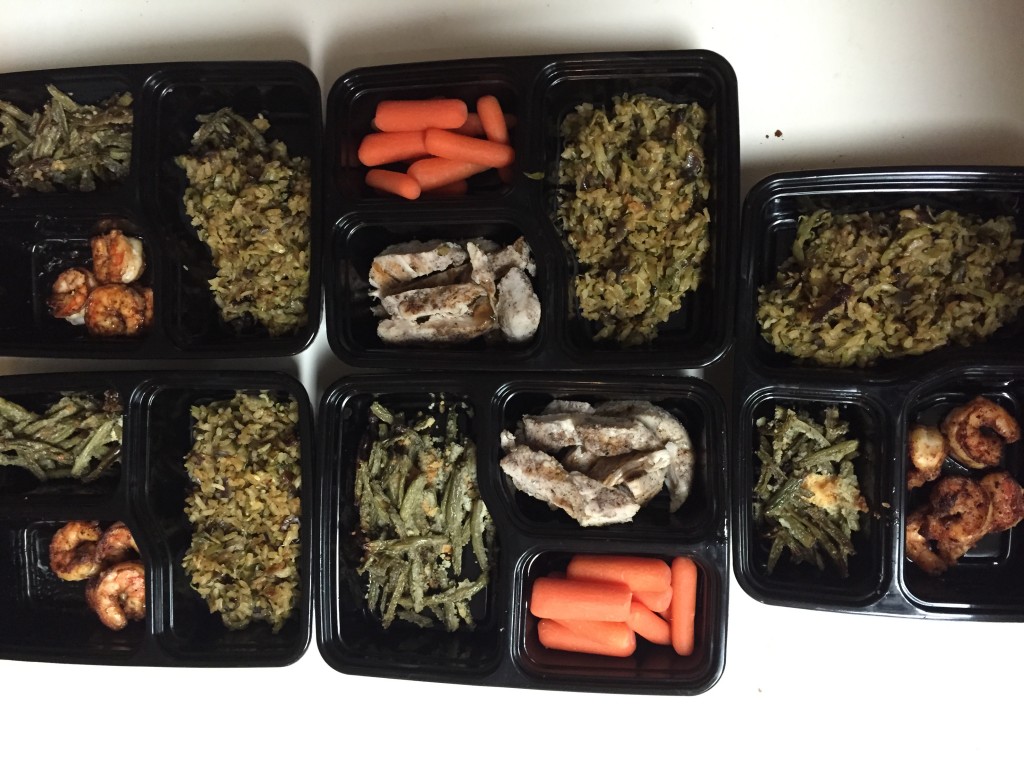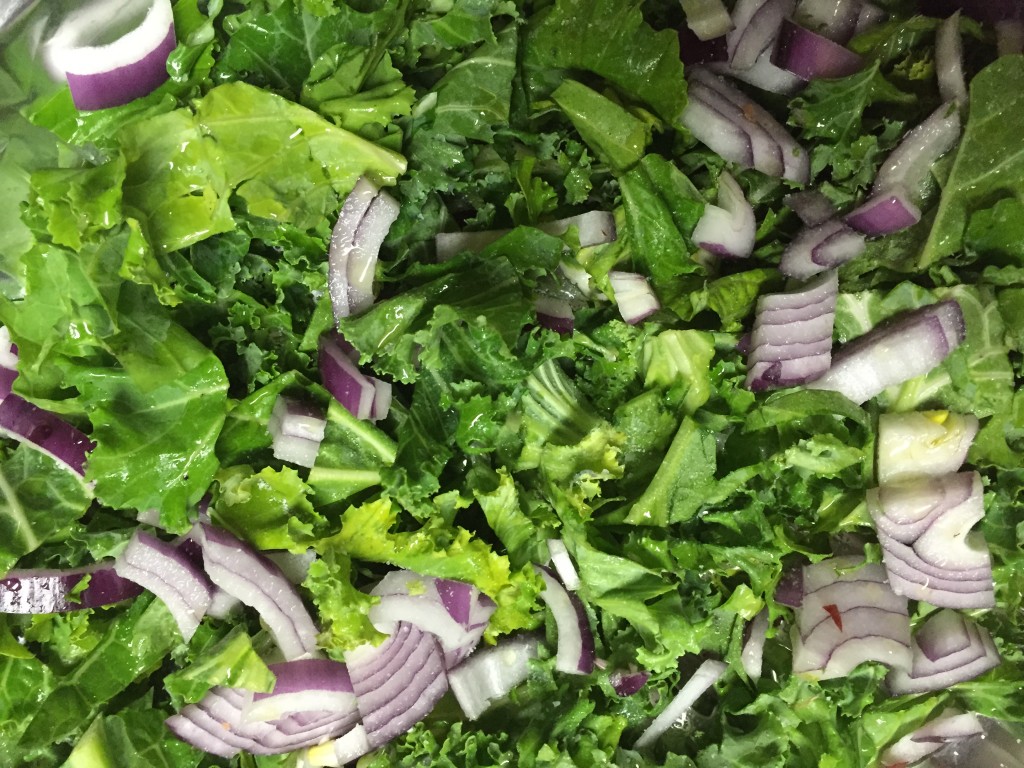My father, being the Southern Black man he is, has zero qualms commenting on people’s weight.
I’ve been horrified on multiple instances to hear him gleefully exclaim that someone was “gettin’ fat”…something that seems to be perfectly normal and acceptable conversation for his generation (they put less value on the amount of space bodies occupy so…) Well, last week he told me I was “gettin’ skinny” and asked how much weight I’d lost. “About 40 pounds since I was laid off.”
I think I’ve crossed one of those aesthetic weight loss milestones because just this past weekend, a friend of mine told me I looked like “half of Megan” while gushing about how different I looked. Highly unlikely on my large, 6’ tall frame, but anyone who’s lost weight knows that there are certain points in the process that seem to register visually with people and alter the way you’re treated and addressed.

This post though, isn’t so much about weight loss as it is the reasons behind it…this is something I’m hoping fitness trainers and freelancers will listen closely to, because, after spending quite a few years deep in the athletic and fitness trenches, most of the industry completely misses the point of how diet works in favor of cheap and easy will power-based approaches. This is doubly true for Black people. Triply so for Black women. (At least three times in the last week I’ve seen Black men specifically chiding Black women for making poor dietary choices without even a nod as to the “why”)
Office Life With Food
Anyone who has worked in an office knows that they are the place reasonable dietary habits go to die.
Even my best meal-prepping efforts were met with an onslaught of emotional assaults that made me forget my spinach and feta turkey burgers ever existed (they’re really good too…like for real). Notice I said “emotional assaults” there.
Too often in the discussion of workplace dietary challenges (or any dietary challenges really), the focus is on temptation and keeping lower-quality food out of access. That’s important for sure, but what I found, both making adjustments in my job and beginning work as a freelancer, was that what mattered a lot more than not buying the bakers’ dozen of chocolate chip cookies, was focusing on my emotional health.
I’ve come to believe that more of us are emotional eaters than we realize. It might be an emotion of stress, nostalgia, self-loathing, control, wanting to belong, or sadness, but those are all emotions and they can all heavily impact our food choices.
For me at my job, poor food choices grew out of a few different situations:
- I needed to get out of a miserable office environment, and food was about the only thing that fit into an hour-long lunch break, reduced stress, and didn’t alienate me from coworkers (taking time to walk or do yoga doesn’t always resonate well with office culture, or mesh well with Florida humidity.)
- Meetings were often held at chain restaurants and ordering food that was “too healthy” was frequently met with snide comments from others who didn’t want to control their choices…these people were generally superiors.
- Food, in the form of trying new dishes and restaurants provided an excitement and stimulation that was lacking in my work environment.
- The coworkers I actually did enjoy spending time with, and who were frequently the only thing keeping me from storming out in a blaze of profanity, bonded over food. I was wary of rocking the few beneficial relationships I had.
Over the years I did all the right things…kept nuts and dark chocolate in my desk, limited when I ate out, portion control, meal prep, physical activity during lunch, regular breaks to do yoga and move throughout the day, breathing exercises, classes at the gym 3-4 times a week. I was still a good 30lbs overweight, but ya know what? I still say they worked. I could have easily been another 40lbs heavier, so I saw all that as damage control…I was overweight, but way less than I could have been considering the stressful and often abusive environment I was building a career (and lifestyle habits) in.
Food And Freelancing
What beginning a life as a freelancer has done more than anything, was give me back more control of my emotional state. Generally, the pains I was soothing with pizza and Panera Bread no longer exist, and it’s changed so much of my relationship with food.

I used to KILL Publix subs (if you’re in the South in the U.S., you know how good they are). As a compromise, I’d split them across two days, but they still weren’t optimal choices for a sedentary job. Those half subs though, were amazing after a morning of meetings and chaotic emails. Sweet tea from McDonald’s made pointless report generation tolerable, and doughnuts? They were a balm for all manager shenanigans.
If you would have asked me then why I liked those things, I would have said they taste good…and don’t get me wrong, they still do, but now they don’t taste good enough for me to forego my prepared meal, run out, and pick them up. I’m convinced that half the reason they registered whith my palate and soul the way they did, was the sheer transition from a state of stress to one of relief and relaxation. Since freelancing has allowed me to choose the stress levels I work under, well, that transition just isn’t there, so a sweet tea run is no longer worth the gas or time.
This morning I got an IM from an old coworker saying that she’d started working from home one day a week… “I swear I only eat 20% of the food I do when I’m in the office.” I believe her. People grossly underestimate the impact a culture of busyness and stress acceptance has on our health and dietary choices.
I’m really curious to find out if any other freelancers have noticed a change in their eating habits or even cravings after they made a transition, because something tells me my story isn’t uncommon at all.
Megan.
Love this post Megan. It’s a very thoughtful overview of the personal relationships (and extended relationships) we have with food. I’ve also recently journaled my food paradigms. Quite unexpectedly, I discovered abrupt truths about myself, specifically my thoughts and behavior within my relationship to food, that I hadn’t been able to tap into with even some of the best self-development tools. And because I’m still exploring (and battling) my own food issues, I’m still uncovering self-truths that had previously remained hidden.
Thanks for such a personal post, Megan. I’ve learned that my relationship with food has directly impacted other aspects of my life, including how I approach, manage and respond to work politics.
Thanks Addison!
Food journaling can show you so much, it can be a really productive exercise. I did it a couple of times while I was at work and it told me so much about my emotions at work (which were a complete mess.)
At my day jobs, I trained my co-workers early on to expect “wierd” (read: healthy) food from me. Yes, I will have chia pudding or seaweed salad for breakfast. Yes, I will have sprouted-wheat toast with avocado for my lunch. Thank you so much, but no I do not want your milk chocolate treat.
In spite of that, I gained weight (for the first time in my life) at my 9-to-5. Not enough movement, way too much stress, and 200+ emails per day.
These days, I’m making another attempt at a green smoothie challenge, getting back into yoga, AND I’m cutting way back on email. Resetting my stress clock back to normal.
LOL…I’m about to go get some toast with avocado now.
I think I only lost weight twice in my 9-5 and once it was because I was so miserable I started unhealthy eating patterns, and the second it took a lot of will-power because it was a non-stop battle against stress (like you mentioned.)
I’m with you on the smoothies! I took a break after about 6 months of them to do high-protein breakfasts, but trying to get back soon. What challenge are you doing?
Thank you for sharing this. I have recently realized that my eating problem is really an emotional, mental and self management problem. I am currently still working at a start-up/office while transitioning to completely freelance. While I may have more freedom than a traditional corporate job, I still feel alienated and stressed while constantly worrying about how I got to my current poor state of health and fitness and if it will ever recover.
I worked in a similar “loose” environment for years. The stress still impacted my diet and self-treatment. For the longest I thought it was just me. Nope.